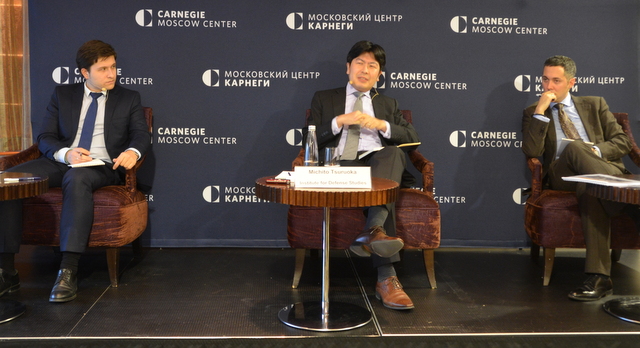Registration
You will receive an email confirming your registration.
Relations between Tokyo and Moscow have been developing rapidly since Japanese Prime Minister Shinzo Abe’s visit to Sochi in May 2016 and his meeting with Russian President Vladimir Putin in Vladivostok. However, one of the main constraints on a rapprochement between the two countries is that Japan has a military alliance with the United States, while Russia is engaged in an open confrontation with it.
How much does or should this fact affect the development of bilateral relations between Russia and Japan?
What are Japan’s objectives in its military alliance with the United States?
Do U.S. alliances in Asia pose a challenge to Russian security, similar to NATO’s presence in Europe?
Michito Tsuruoka, a leading security specialist and a former top official of the Japanese Ministry of Defense, and Anton Tsvetov, a leading expert on the Asia-Pacific Region at the Center for Strategic Research, discussed these topics.
Alexander Gabuev, Chair of the “Russia in the Asia-Pacific” program, moderated.
Anton Tsvetov
Anton Tsvetov is expert of Center for Strategic Research.
Michito Tsuruoka
Michito Tsuruoka is senior research fellow of the National Institute for Defense Studies, Japan.
Alexander Gabuev
Alexander Gabuev is a senior associate and the chair of the Russia in the Asia-Pacific Program at the Carnegie Moscow Center.
